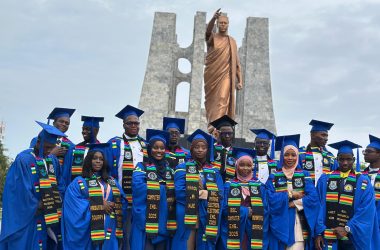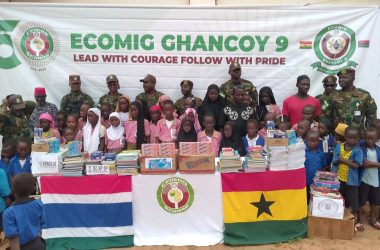
(JollofNews)- The Coalition 2016 government which has just been unveiled by its leader His Excellency President Adama Barrow compels me to give this brief historical reflection on the fact that in the ten years leading to independence, all governments which led The Gambia were coalitions of more than one political parties.
This means that under the pre- independence colonial (1954-1961), P.S N’jie (1961-62) and President Jawara’s (1962-1965) governments there was always a deliberate attempt to forge a political consensus through the formation of unity governments comprising different political parties.
The lesson I want elicited here is that our country has had a long culture of political accommodation and tolerance which I am sure will be strengthened under President Barrow’s new government.
Under the Second Republic, our political field was so monochromatic and unyielding that young Gambians without knowledge of our contemporary history could surmise that Gambian politics had always been a Winner Takes All system. Nothing can be farther from the truth as I will show in the following paragraphs.
Another lesson to learn is that the coalition governments mentioned below were formed after and not before elections. They were formed to address the exigencies of national unity and political dialogue after bitterly fought and fractious elections, especially to address the yawning colony-protectorate divide which the colonialists created. Here they differ with the Coalition 2016 which was a pre-election alliance of parties eager for change, which have won a free and fair election and now have formed a government.
However, the Coalition 2016 too will have some national divides to bridge, national wounds to stitch, especially following the terrifying 40 days transition. Gambian democracy is indeed going full cycle and maturing.
The 1954 Coalition Executive Council (cabinet)
Following the October 1954 elections, Governor Sir Percy Wyn-Harris appointed:
Reverend John Colley Faye leader of the Gambia Democratic Party as Minister of Public Works and Transport;
I.M Garba-Jahumpa leader of the Gambia Muslim Congress as Minister of Agriculture;
P.S N’jie leader of the United Party(UP) as Minister of Education and Welfare.
The three men were among the 11 elected MPs in the legislative council elections of October 1954, and were the dominant political figures in Bathurst and Kombo, the parts of the country which had adult suffrage at the time. Following the elections, the Governor intended to appoint only two elected members (Jahumpa and N’jie) to Ministerial portfolios but in the interest of maintaining stability in the political climate in Bathurst, added Faye, who proved more popular than Jahumpa, but was in the bad books of the colonial government. Governor Wyn-Harris wanted to secure the ‘major interests’ of all the three major parties then operational in Bathurst in the interest of national unity.
The 1960 cabinet
Another cabinet with multiple party representations was the one formed in June 1960 following the first elections fought under universal adult suffrage from 18-30 May 1960. The elections took two weeks to conclude because due to lack of roads, the mobile polling stations had to trek through the country to allow people to vote.
The parties which fought these elections were the new Protectorate Peoples’ Party(PPP), the UP, the Democratic Congress Alliance(DCA) (a merger of Muslim Congress and Democratic Parties) and Independents. As the majority of Gambians were new to party politics, and parties like the PPP were barely one year old and therefore inchoate, candidates ‘were not required to identify their party allegiances’ in the words of the noted historian Arnold Hughes.
This is why the gazette results of these elections did not mention any party leanings for the winners. Indeed, some winning candidates like Michael Baldeh, father of the late Buba Baldeh, who was elected for Basse constituency was supported by the PPP who assisted in his campaign. But after his victory, he declared for the UP!
 This is why up this day, historians cannot agree of the real results! For example, Jay Saidy in his study of Gambian elections titled ‘Who is Who for Parliament? 1960-1997’ (page 2,3) differ from the results published in the magisterial ‘Political History of The Gambia 1816-1994’ by Hughes and David Perfect.
This is why up this day, historians cannot agree of the real results! For example, Jay Saidy in his study of Gambian elections titled ‘Who is Who for Parliament? 1960-1997’ (page 2,3) differ from the results published in the magisterial ‘Political History of The Gambia 1816-1994’ by Hughes and David Perfect.
My own research based on the results published in The Gambia News Bulletin of June 6 1960 slightly differs from both Saidy and Perfect. Perfect concludes that the PPP got 9 seats; UP 5; DCA1; and Independents 4 and as he is my senior scholar I shall differ to him. Chiefs were assigned 8 seats as per the provisions of the 1960 constitution. It is noteworthy that it was at this 1960 election that the legendary drum, bell and marble system which we still use today, were instituted by the chief electoral Commissioner, Mr.Orde.
The 1960 elections therefore were trend setting, but did not produce a clear winner which led Governor Windley to form a unity coalition cabinet comprising of PPP, UP, Independents and Chiefs. The Governor wanted the nationalist leaders to share the responsibility of leading the country to full independence. Sadly, or wisely, P.S N’jie of the U.P took umbrage at his not being given a full ministerial portfolio and opted out of the coalition. Thus the PPP, Chiefs and Independents stayed on in the coalition cabinet:
Hon. Howsoon O Semega Janneh- Agriculture (Independent)
Hon. Alieu Badara Njie-Communications (DCA)
Hon. David Kwesi (Dawda Kairaba) Jawara-Education(PPP)
Hon. Andrew David (Assan Musa) Camara- Minister Without Portfolio (Independent)
Hon. Sheriff S. Sisay- Minister Without Portfolio (PPP)
Hon. Chief Omar Mbaki-Minister of Works (Chiefs)
To be continued
Hassoum Ceesay is a Gambian historian, writer and museum curator at the Gambia National Museum. He is one of the sharpest and most prolific Gambian historians.




Historians report history they don’t make history. I have doubts about Mr. Ceesay claiming to being the “sharpest” historians in our small country. Why our so-called historians deliberately refused to acknowledge the important role Sir Dawda Jawara played to bring democracy in our country. I followed the narrations during the 200 years celebration of Banjul and I was shocked that former President Jawara’s role was confined to the dustbin of the history of Banjul, downplaying the his enormous contributions to making democratic Gambia to what it is today. The sharpest historians would never be afraid to tell the truth. Spare us the self-praise please.